
Comedy gets the short end of the critically acclaimed stick. Best Picture winners tend to be the heady dramas and the tearjerker biopics – what makes us laugh just isn’t valued as much as what makes us cry. So what’s comedy to do? Walk its clown shoes down the road to the bus stop and hitch a ride to Artistic Irrelavence-Ville? No, the answer: rebrand. Comedy might not get any respect from the critics, but satire? That’s another matter entirely. Perhaps it’s the cynicism and darkness of the genre that feels in the ballpark of the tragic greats. Or maybe it’s that labeling things as “satire” just makes critics feel smart? You can decide the answer for yourself with the 10 best satire films of the 21st century.
Don’t Look Up

Adam McKay’s Don’t Look Up is the spiritual successor to Idiocracy, a parable about government incompetence and national stupidity for the modern era. A comet of human civilization destroying proportions is on a collision course with the Earth, and astronomer duo Kate and Randall are the only two people on the planet who understand the gravity of the threat – no pun intended. The pair attempt to rally humanity’s best minds to come up with a solution, but the only intellects they come across are below average at best. While the American government is at first gung ho at solving the problem with a nuclear bombardment, they’re convinced otherwise by independent billionaires who want to mine the planet-destroyer for rare minerals – oblivious to the fact that there won’t be anywhere left to spend the money after impact. It’s an examination of the stupidity of American oligarchy, how the powerful and the powerfully uninformed are often one and the same – with devastating consequences for the rest of humanity.
Sorry To Bother You

Boots Riley’s Sorry To Bother You takes place in a near future capitalist dystopia – and by near future, with the way things are currently going, that could mean a couple months from now at best. In order to make ends meet, Cassius “Cash” Green takes a job as a telemarketer for a powerful conglomerate – and discovers that he makes double the sales when he uses his “white voice” on calls. As Cash quickly soars through the company ranks, he learns that his higher-ups are have their fingers in quite a few morally dubious pies – weapons manufacturing, genetic engineering, and slave labor. It’s whacky sci-fi satire with teeth – an exploration of how far one can go to game the system before becoming part of that system itself.
Idiocracy
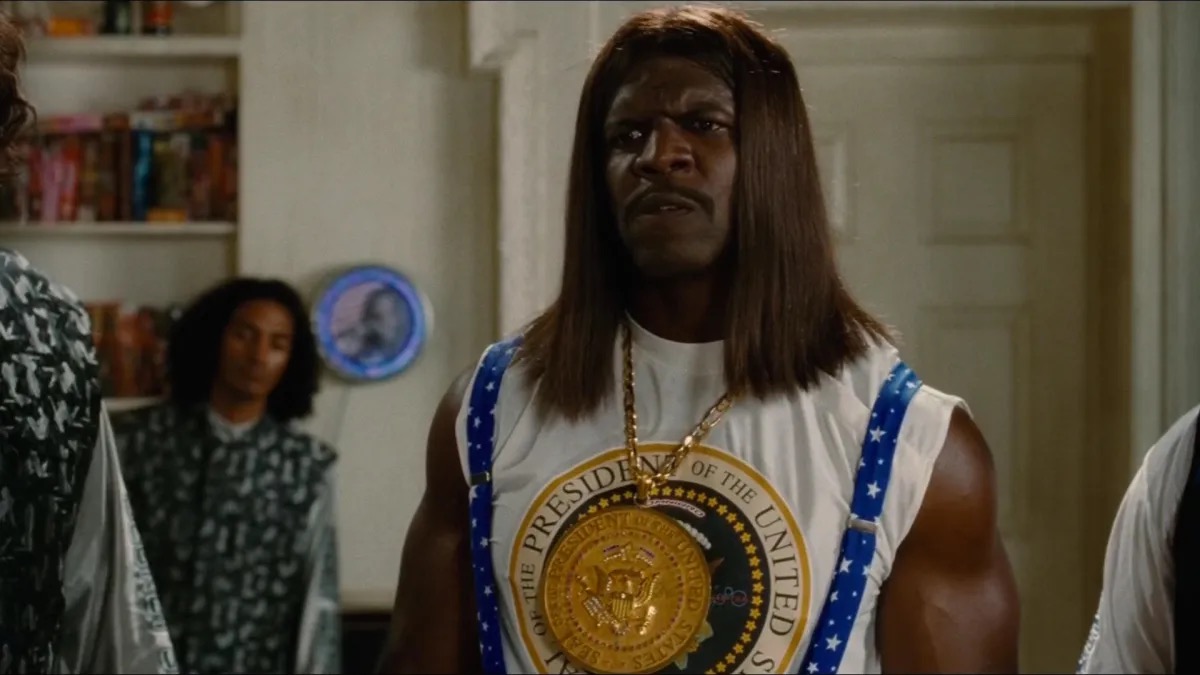
A sci-fi send-up of the Bush years, Idiocracy is an unflinchingly critical glimpse into 00’s America from 500 years into the future. Handpicked by the government for their perfectly average intelligences, Joe and Rita are placed in suspended animation by the U.S. military, reawakening in the 26th century. Things haven’t changed for the better, rampant consumerism and lowbrow cultural consciousness have caused human intelligence to reach its nadir. Now the two smartest people on Earth, Joe and Rita work to save humanity from its own worst enemy: itself. Newly hired by President Dwayne Elizondo Mountain Dew Herbert Camacho (played by Terry Crews in a career best performance) Joe and Rita are expected to solve America’s failing crops and stagnant economy – or face a public execution via monster truck rally. You thought the United States was bad in the 21st century? You ain’t seen nothing yet.
American Psycho
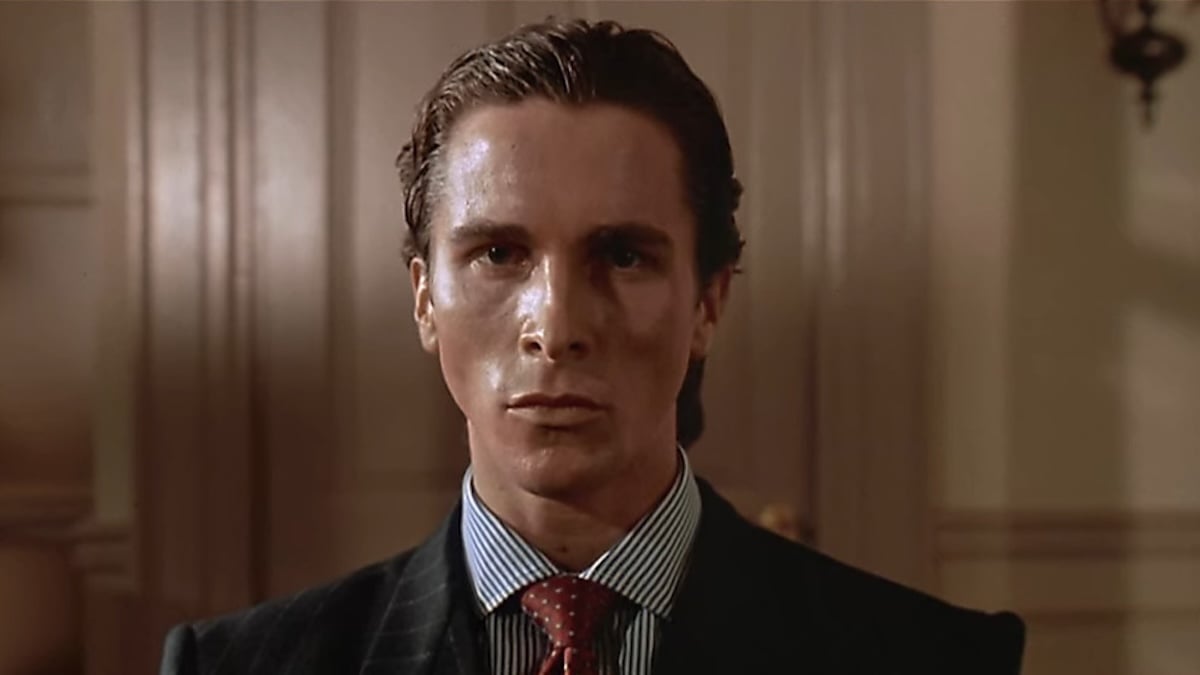
Directed by Mary Harron, American Psycho is a satire done so well that of its fans unironically lionize the very things that the film critiques. A glimpse into vapid New York City culture in the 1980’s, the film follows Wall Street worker Patrick Bateman – who moonlights as a cannibalistic serial killer. Bateman is the poster-boy for the idea of the successful American male: he’s handsome, muscular, wealthy, powerful and he gets laid (when he pays for it). He’s also one of the most shallow, empty, vicious, pathetic, and depraved characters in cinema history. As the film oscillates between Bateman’s mundane appraisals of business cards and nightmarish butchery of human bodies, the central thesis of the film becomes clear: “you’d have to be crazy to work on Wall Street – just look at this guy.” Sadly, there’s a subsection of the film’s accolades that accept Bateman as an enviable success object on its face – rather than a depraved lunatic under the peel-off skincare mask.
What We Do In The Shadows
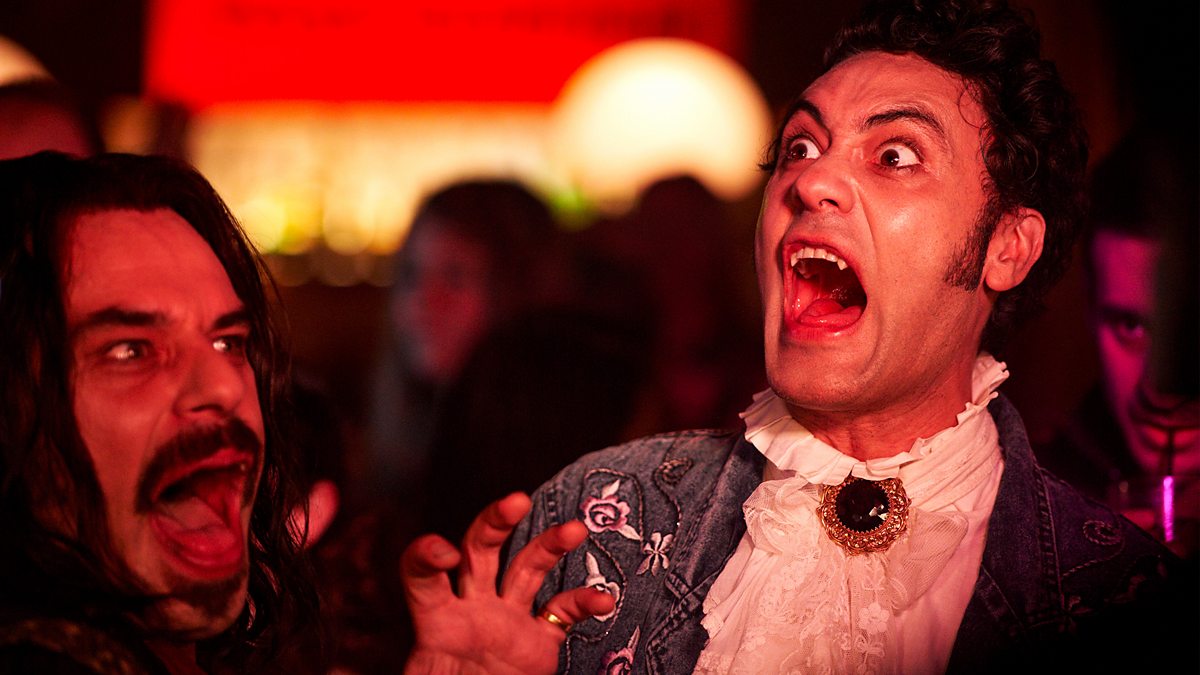
The ultimate pop cultural sendup, Jemaine Clement and Taika Waititi’s What We Do In The Shadows lampoons a fan favorite stock character that lives rent free in the social psyche: the vampire. Dangerous, debonaire, sexy, scary, scintillating – this mockumentary’s suburban vampire subjects are none of these things. They take the public bus to their hunting grounds, they struggle to work computers, and they have petty rivalries with the local werewolf population. The ultimate cultural boner killer, the film demystifies the vampiric ideal from the reality. Aside from the blood drinking, the bat transformations, and the gauchely gothic sensibilities, they’re people just like us. Undead people, but people. Messy. Insecure. Probably a little more violent than the average person – but when your life depends on drinking others, you do what you gotta do.
Thank You For Smoking
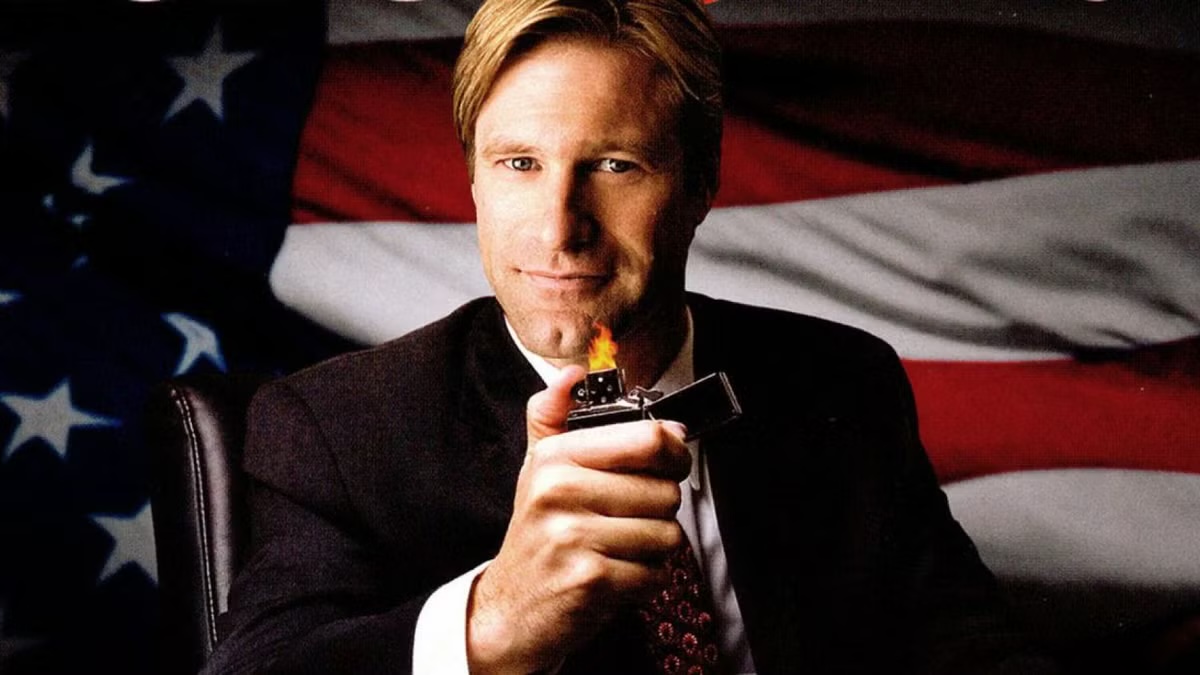
Jason Reitman’s Thank You For Smoking is the story of Nick Naylor, a spokesman for the “research” organization The Academy of Tobacco Studies – which is really just a tobacco company lobby in disguise. Peddling the lie that there’s no link between smoking and lung disease, Nick and his friends gleefully manipulate the public into a false sense of cigarette security. While Nick knows that he’s not telling the truth, he simply doesn’t care – so long as it makes Big Tobacco more money. It’s a send up of one of the most famous modern conspiracies: tobacco company efforts to convince the public that smoking isn’t a health hazard. It’s peak black comedy – the same shade as your lungs after a lifetime of inhaling what these sheisters peddle.
Borat
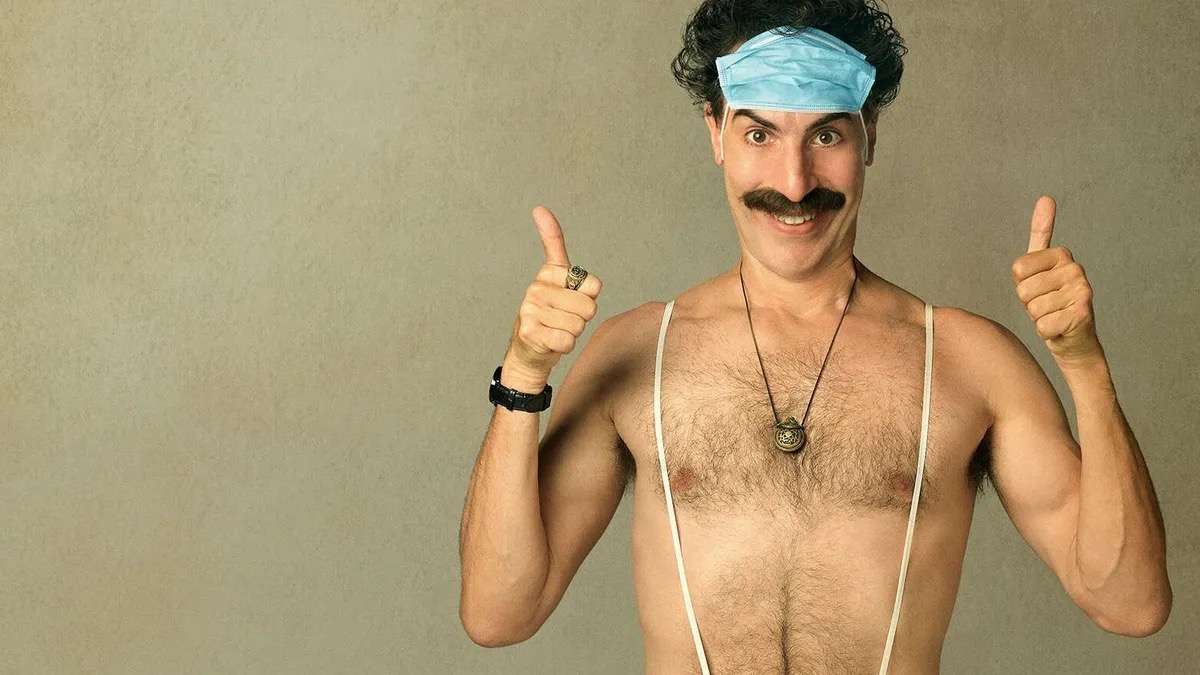
One of the most infamously quotable films of the century is Borat! Cultural Learnings of America for Make Benefit Glorious Nation of Kazakhstan – directed by Larry Charles and starring Sacha Baron Cohen. A mockumentary on American culture from the point of view of a woefully uninformed Kazakh journalist, Borat is a scandalizing look into the culture of the early 2000’s. Using fearless Socratic irony, Cohen’s Borat asks his interview subjects questions from a place of feigned cultural ignorance, with cringe-inducing results. While claiming that America is “greatest country in the world,” Borat unwittingly exposes the United States to be the exact opposite – putting its close-minded nationalism and cultural bigotry on full display. Contrary to its main character’s catch phrase, this jaw-dropping satire proves that America is often anything but “very nice.”
In The Loop

Directed by Armando Iannucci, In The Loop is a British black comedy criticizes one of the most controversial foreign policy decisions of the 21st century – the U.S. invasion of Iraq. It’s the story of bumbling U.K. politician Simon Foster, who makes an offhanded on-air comment that war with Iraq is “unforeseeable” – causing the U.S. to question whether or not it staunch ally actually supports its invasion plan for the Middle East. Invited to America and caught up in internecine government drama, Simon is dragged into a war between hawks and doves debating military action. It’s a story of the messy egos at the heart of the political system, and how petty personal grievances can influence national decisions – spurred on by the ineptitude of one man. Wouldn’t wanna be Simon.
The Menu

Mark Mylod’s The Menu is a story of the insufferable: the whims of the wealthy, the struggles of the working class, the ambitions of the pompously artisitic, and the culture that creates it all. Wealthy Tyler brings his date Margot to a private island owned by a celebrity chef for the meal of a lifetime, and the pair discover it might just be their last. As Chef Julian Slowik rolls out the courses for his VIP clientele, they get the sneaking suspicion that they themselves are on the chopping block. The Menu is a metaphor for the inherent classism of the service industry – one whose business model depends on catering to the caprices of the rich and powerful. After a lifetime spent in service to creating great culinary art, Slowik is sick of cooking for people who don’t appreciate it. Margot meanwhile would appreciate directions to the nearest exit – chef’s got murder in his eyes.
Triangle of Sadness

Ruben Östlund’s Triangle of Sadness is The White Lotus meets Survivor. After being invited on a trip to luxury cruise, influencer/model couple Carl and Yaya struggle to survive after the ship encounters Bermuda Triangle levels of bad luck. The Russian oligarchs, wealthy tycoons, and beautiful models are helpless to protect themselves from mechanical failures, food poisoning, and pirates – causing their cruise to collapse under the weight of its own ludicrous luxury. With no one else to turn to, the passengers select Yaya to be their de facto leader, and the carefree model is forced to shoulder the weight of useless group. How can people worth so much be capable of so little? That’s exactly the question this satire seeks to answer.
Have a tip we should know? [email protected]







